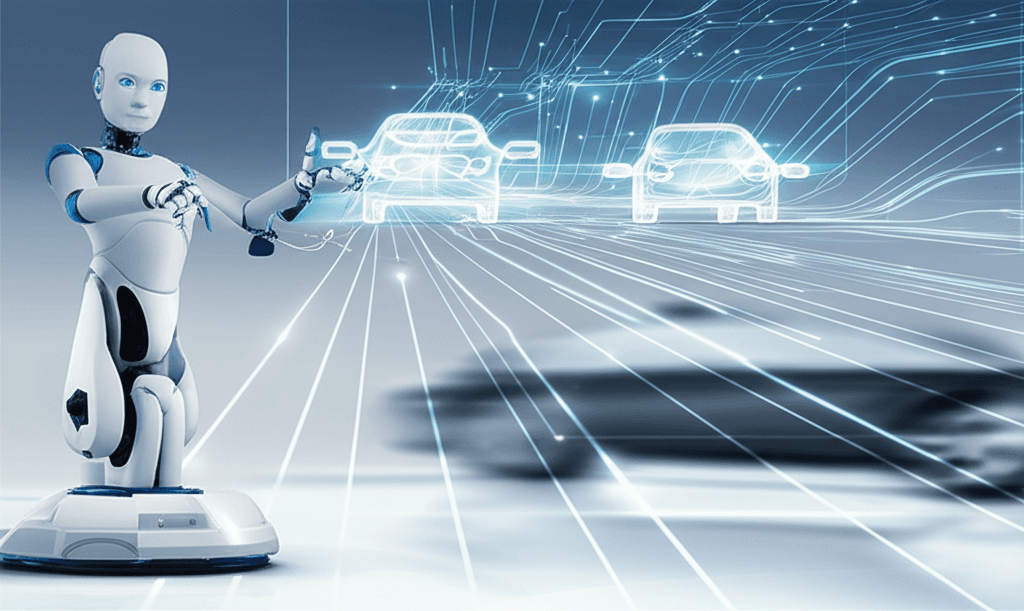Diligent Robotics Poaches Cruise Talent for Ambitious Humanoid Robot Rollout
From driverless cars to helpful humanoids: Cruise veterans propel Diligent Robotics into the next phase of autonomy.
July 15, 2025

Humanoid robot maker Diligent Robotics has strategically hired two former top executives from the autonomous vehicle company Cruise, signaling a significant push to scale its operations and expand beyond its established base in healthcare. Rashed Haq, Cruise's former head of AI and robotics, joins as chief technology officer, while Todd Brugger, previously the operations chief at Cruise, has been appointed chief operations officer.[1][2] This move brings seasoned leadership from the world of self-driving cars into the burgeoning field of AI-native humanoid robotics, highlighting a convergence of technologies and a bet on the future of automated systems in human environments.
The appointments come as Austin-based Diligent Robotics aims to accelerate its growth and apply the lessons learned from scaling autonomous vehicle fleets to its own humanoid robot, Moxi.[3][4] Moxi robots have already established a strong presence in the healthcare sector, operating in more than 30 U.S. hospitals where they perform non-patient-facing logistical tasks.[1][5] These duties include delivering supplies, medications, and lab samples, which has saved hospital staff nearly 600,000 hours.[1][6] The company has deployed approximately 100 Moxi robots and recently surpassed one million completed deliveries.[7][8] By taking over these repetitive tasks, Moxi aims to alleviate workforce shortages, reduce clinician burnout, and allow medical professionals to focus on direct patient care.[9][8] The company's success in these complex and sensitive hospital environments is seen as a crucial validation of its technology and a stepping stone to broader applications.[3]
The new leadership from Cruise is expected to be instrumental in this expansion. At Cruise, Haq was responsible for building the AI and robotics foundations that led to the deployment of a large fleet of driverless vehicles, accumulating over 5 million miles in multiple cities.[3][6] In his new role as CTO, he will focus on advancing Diligent's AI roadmap and unlocking new capabilities for Moxi.[9][3] Brugger's experience is similarly vital; as COO at Cruise, he oversaw the scaling of its robotaxi fleet from zero to over 500 vehicles.[2][3] His expertise will now be applied to scaling Diligent's entire business lifecycle, from robot manufacturing and deployment to in-field support and commercial strategy.[2][9] Diligent's leadership has emphasized that the experience these executives have in scaling autonomous technology is precisely what the company needs for its next phase of growth into wider commercial markets.[5] The goal is ambitious, with plans to deploy over 3,000 robots by 2030.[5]
The transition of talent from the autonomous vehicle industry to humanoid robotics underscores the significant technological overlap between the two fields.[6] Core technologies such as multi-modal perception, predicting human behavior, and real-time planning under uncertainty are fundamental to both self-driving cars and robots designed to navigate human spaces.[2] Diligent's co-founder and Chief Innovation Officer, Vivian Chu, noted that deploying AI-native humanoid robots in human environments represents the "next frontier of autonomy" and is an even more complex challenge than self-driving cars.[6] This complexity arises from the need for robots to not just navigate, but also to interact with and manipulate objects in dynamic, semi-structured settings like hospitals, which are built for people.[10][11] Moxi's design, which includes a robotic arm, mobile base, and social intelligence cues, allows it to open doors, call elevators, and avoid obstacles, demonstrating a sophisticated level of interaction with its environment.[12][11][13]
In conclusion, the hiring of former Cruise executives by Diligent Robotics marks a pivotal moment for the company and a noteworthy trend within the broader AI industry. It reflects a strategic decision to leverage the expertise gained from the intense development and scaling of autonomous vehicles and apply it to the proximate challenge of humanoid robotics. With a proven product in the demanding healthcare sector and a leadership team now fortified with experience in large-scale autonomous deployment, Diligent Robotics is positioning itself to be a key player in the expansion of humanoid robots into a variety of industries. This move not only signals Diligent's ambitious growth plans but also highlights the maturation of embodied AI, suggesting a future where robots and humans collaborate ever more closely in a multitude of daily tasks.